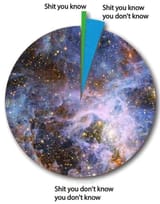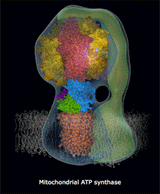>>512428707 (OP)
Descartes famously said "I think, therefore I am".
Pretty much 99% of people who read it or know of it, think the statement is a celebration of human consciousness, an affirmation of the power of our cognition. Ironically, he meant the complete opposite.
As he grew older, Descartes became increasingly obsessed with acquiring genuine knowledge. Eventually he came to the conclusion that is was impossible. There was nothing, absolutely nothing at all in the entirety of existence and the entirety of human experience, nothing he could ever be completely 100% certain of. All of life could be a dream, a simulation, maybe it was an elaborate illusion conjured up by a demon, how could he ever completely trust his senses when they so often betrayed him?
There was only one single thing he could ever be certain of. One thing only. What do a dream, an illusion, a simulation, real life, a phantom world, all have in common? You. There is something experiencing that illusion, that reality, that dream. You know that there is something in existence, your consciousness, that is experiencing all of it. Beyond that, you can never be certain about anything. Anyone who claims to have any definite answer, any kind of truth, any irrefutable 100% knowledge, is a fool, and they expose themselves as a fool by making such claims.
Ultimately it doesn't matter. What's less "real" about a fantasy world compared to what you would think of as reality? That fantasy world, or illusion, or dream, or simulation exists, and its existence is based on certain rules just as much as your idea of what a "normal reality" would be.
So then, what's the difference?
http://emlo-portal.bodleian.ox.ac.uk/collections/?catalogue=rene-descartes
 8/7/2025, 5:52:03 AM
No.512428707
>>512429369
>>512430323
>>512430483
>>512431123
>>512436032
>>512440254
>>512441171
>>512441492
>>512443144
>>512448832
8/7/2025, 5:52:03 AM
No.512428707
>>512429369
>>512430323
>>512430483
>>512431123
>>512436032
>>512440254
>>512441171
>>512441492
>>512443144
>>512448832












